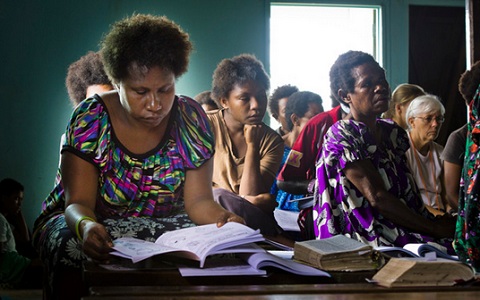“To have access to books means access to knowledge,” explains Rudy Yawiro, an archive specialist in the Eastern Highlands. Irina Bokova, the director-general of UNESCO, agrees. She says, “[UNESCO’s] goal is clear—to encourage authors and artists and to ensure that more women and men benefit from literacy and accessible formats, because books are our most powerful forces of poverty eradication and peace building.”
Without the work of literacy, translation, and language development, books and all the wisdom, joy, beauty, and knowledge contained therein remain silent for many languages of the world, including many people groups in Papua New Guinea.
Nasin and Simeon worked all afternoon, painstakingly inking the silkscreen, squeezing off the excess, and laying page after page to rest on benches behind them, until the humidity of the Rai Coast in Madang province curled the edges, dry, ready to be bound. Only when the light started to fade did they finally stop, dropping to the benches in exhaustion. But Nasin paused, then reached for the book, gently peeling back the cover.


